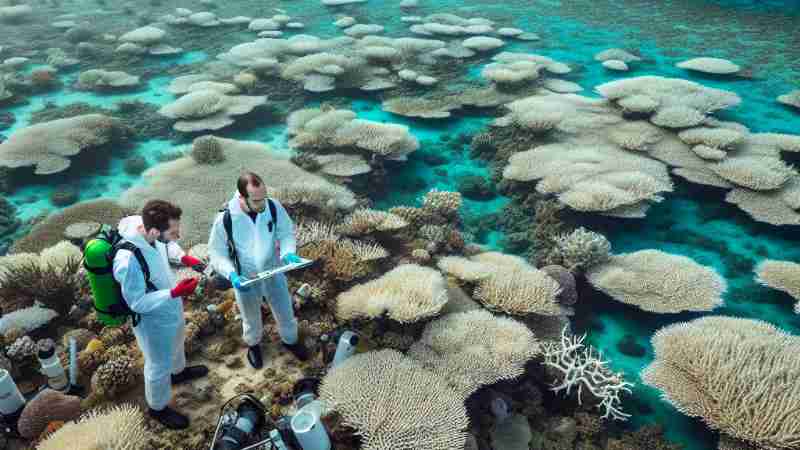The recent marine heatwave has severely harmed the Great Barrier Reef in Australia, and it’s still unclear if the heat-stressed corals will survive their fifth mass bleaching event in eight years. However, experts in marine biology who keep a close watch on the reef’s health are already feeling a profound sense of despair after seeing the extent of the damage. Even coral species known for their resilience have been affected by the record-breaking sea surface temperatures.
Severe coral bleaching affected every part of the largest coral reef system – the north, the center, and the south – for the first time. The water in the southern part of the reef, known for being cooler, experienced significant damage.
I went out diving on one of the southern reefs at the end of March and it was quite confronting
Lissa Schindler
Environment in peril
Neil Cantin, a researcher from the Australian Institute of Marine Science, described it as the worst bleaching event on record. Aerial surveys conducted by his team revealed that nearly two-thirds of the UNESCO heritage-listed site had been affected.
As ocean temperatures continue to rise, fueled by El Nino, mass bleaching events are becoming increasingly common. The current event marks the fourth occurrence globally, with over 60% of corals suffering.
Bleaching is the result of heat-stressed corals expelling symbiotic algae (zooxanthellae) from their tissues, which normally serve both nutritional and color functions. In contrast to slow-growing species such as boulder and soft corals, which can endure higher thermal stress levels, other coral types do not fare as well.
Studies also indicate that corals that regrow have decreased strength and fertility, increasing their vulnerability to illnesses and upcoming heatwaves.
Nature’s distress call
Over the past three decades, more than 98% of the renowned Great Barrier Reef has undergone bleaching events. This vast ecosystem hosts an impressive array of life, including over 1,500 fish species and hundreds of types of coral. The reef’s degradation is causing alarm as it plays a crucial role in biodiversity, coastal protection, and medical research.
The dedicated researchers who have spent their lives studying and protecting the Great Barrier Reef now carry a heavy burden on their hearts. They fear for the long-term health and survival of this irreplaceable ecosystem as they witness the devastating impact of the latest bleaching event.
